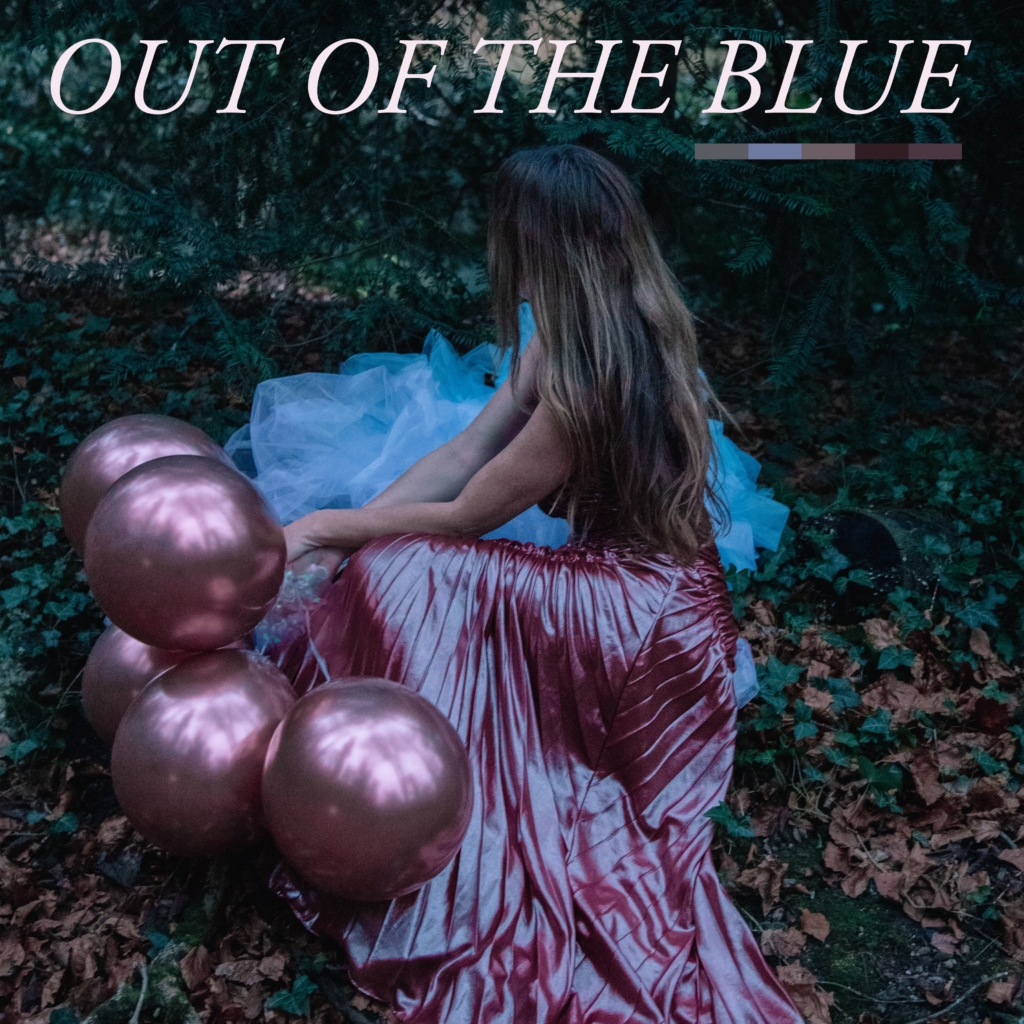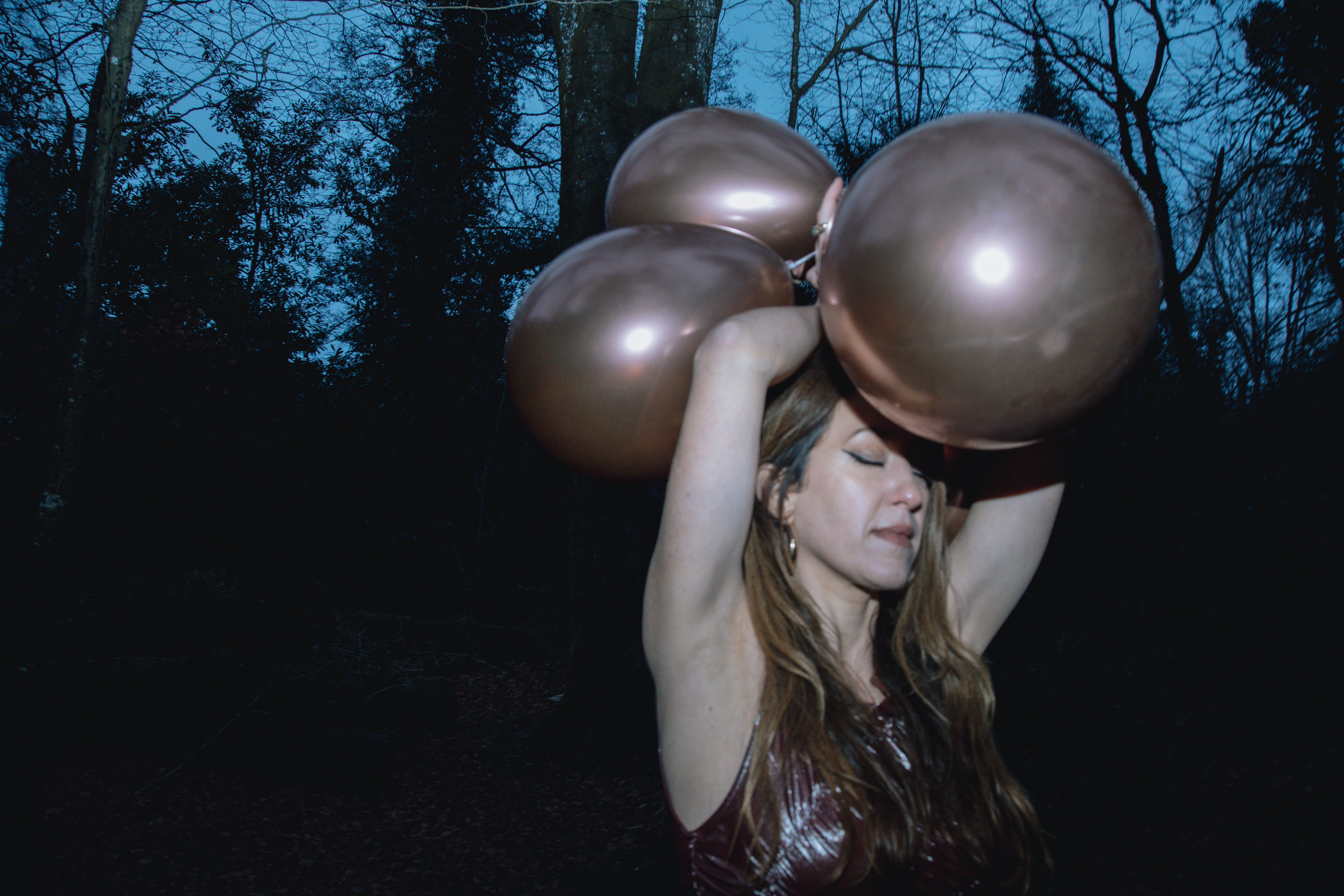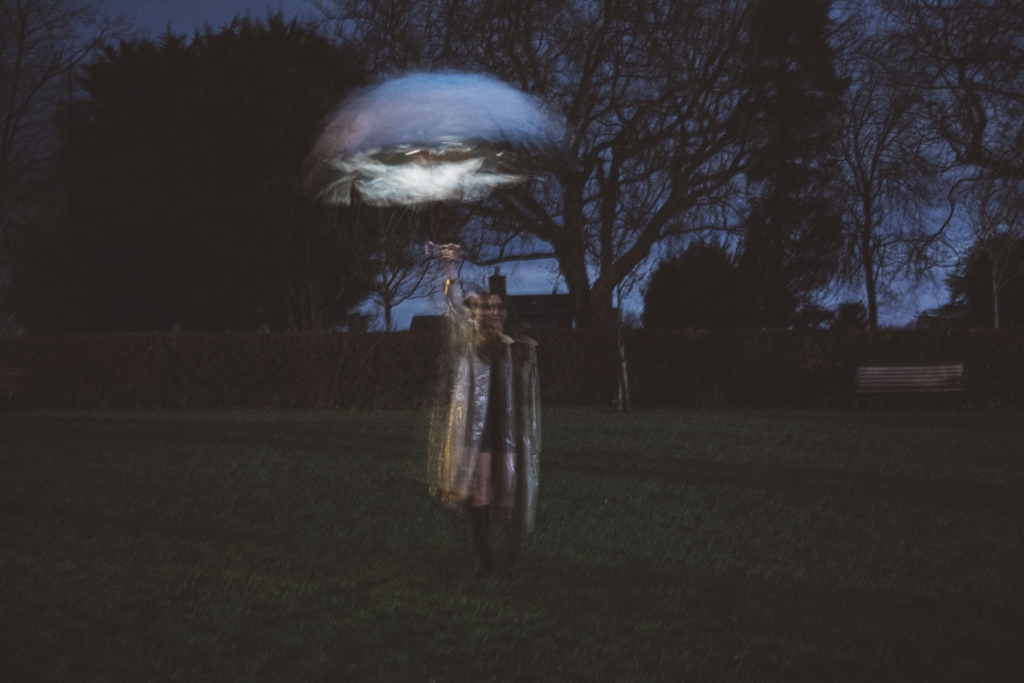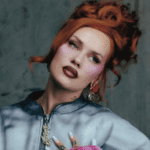
Returning with an unflinching vulnerability and quiet strength, London-based alternative R&B artist Lyves unveils her most soul-stirring work yet with Out of the Blue—a luminous EP shaped by motherhood, emotional healing, and creative rebirth. Known for her cinematic soundscapes and evocative songwriting, Lyves steps into softer light on this release, trading past ache for stillness, intimacy, and newfound clarity. With a sound that drifts between ethereal folk, ambient soul, and left-leaning R&B, Out of the Blue is a body of work that embodies the change. These are songs to come home to, songs that hold space, gently reminding us of our strength even in life’s quietest moments.
“Out of the Blue” marks a shift from longing to healing. Can you walk us through what it felt like to create music from a place of stillness rather than ache?
I’ve always written from wherever I find myself in life. In the past, that place was often longing, reaching for something just out of view. This time, it felt like I was sitting with what already was. It felt powerful to write from a place less rooted in ache and more grounded in acceptance.
Writing from stillness felt like an act of trust. To be honest, many of these songs I initially wrote just for myself—I wasn’t sure I’d share them. Perhaps that added another layer of transparency and vulnerability that’s even more present in this body of work.
Stillness, to me, is where truth can gently rise to the surface—where you can really hear yourself. I really enjoyed the process of writing from that place.
You’ve said this project feels like a ‘love letter to healing.’ What did that healing process look like for you, and how did it manifest sonically across the EP?
Healing has never been a straightforward journey for me. It’s soft, messy, slow, and often quiet. Sometimes it’s about forgiveness, sometimes about letting go of stories I’d outgrown. Sonically, I wanted to reflect that tenderness.
Some tracks are stripped back and spacious, leaving room to breathe. Others are layered and textured, representing the complexity of inner transformation. I hoped the music would feel like a conversation between shadow and light—imperfect but real and gently hopeful.
Motherhood features prominently in this project—from writing ‘Kaleidoscope’ while pregnant to your son’s voice appearing in ‘In The Morning.’ How has becoming a mother reshaped your artistic identity?
Motherhood has added a deep sense of purpose to my life that feels like the biggest gift. I believe it’s made my work feel more intentional and focused. I’ve always written from the heart, but now there’s a clearer sense of why I do what I do.
It’s also made me braver. Time feels more precious, which has helped quiet the inner perfectionist. I’m learning to trust my instincts more—both creatively and personally.
Including my son’s voice felt like the most natural thing. He’s part of the story—not just as an inspiration, but as a reminder of love in its purest form. He’s reintroduced me to wonder, and that’s something I try to carry into my work.
‘Polaris’ uses the North Star as a symbol of trust and clarity. When you were writing it, did you have a specific moment or person in mind that embodied that guiding light?
When I wrote Polaris, I was moving through a period of disillusionment, where things I once trusted no longer felt solid. That image of the North Star came to me as a quiet anchor. Something constant in the chaos.
There wasn’t one person in mind, but rather a feeling—a return to inner guidance. The idea that even when you feel lost, there’s still something inside you that knows the way. I believe we all have that compass. Polaris is about remembering it.
You’ve mentioned receiving messages from listeners who deeply connect with your music. How do those connections impact your creative process moving forward? Do you write with your audience in mind now, or do you still write primarily for yourself?
I still write primarily for myself, but those messages really stay with me and give my work added meaning. They remind me why I create and share in the first place. When someone says a song helped them feel seen or held, it deepens my sense of responsibility, not to be a “healing” voice as such, but to stay honest in my own process.
That honesty is what makes a connection possible. I’ve always felt that my purpose with music is to support others, and I’m incredibly grateful when the music resonates in that way. That kind of exchange is the most beautiful thing I could hope for as an artist. It’s why I do it.

Working with collaborators like SamTRax, Sam Crowe, and Harvey Whyte, how did those creative exchanges shape or even surprise your original vision for the EP?
Collaboration built on trust feels like magic. Each artist, producer, and songwriter who collaborated on the project brought something irreplaceable, not just musically, but energetically.
SamTRax has a unique way of honoring a song’s emotional core while elevating its sonic potential. He helped shape the EP in ways I couldn’t have done alone and was a guiding light in my process.
Sam Crowe has been a close friend and collaborator for years. He understands my musical language intuitively and has an ear for harmony that always blows me away. He held songs like For Eden with such care, helping me finally finish a piece I’d carried for a long time.
Harvey Whyte is a friend and artist I deeply admire. Writing Powder Blue with him felt like resurrecting a prayer—the song poured out of both of us.
Each person allowed the songs to grow, reaching their full potential. I’m truly grateful to work with fiercely talented people I trust and respect so much, who are so generous in spirit.

Your multicultural background spans Italy, Portugal, Australia, and the UK. How do these different cultural touchpoints influence your sound and storytelling?
Living between cultures has shaped so much of who I am—how I see the world, how I process emotion, how I tell stories. It’s given me a deep respect for nuance and a love of beauty in all its forms.
Growing up in Portugal, Fado music was a constant presence. Its emotional honesty—that sense of saudade—left a deep imprint on me. I think that spirit still lives in my work, even if the sonic palette is different.
I also tend to write best while moving between places or in the quiet of transition. Those in-between spaces have always felt creatively fertile to me.
As a self-taught producer and artist, what have been some of the most defining lessons or breakthroughs in your creative journey so far?
Learning to trust my instincts has been the biggest breakthrough. When you’re self-taught, imposter syndrome can be loud. But over time, I’ve learned that intuition is a powerful guide for me personally—I’m not the best player or producer, but I trust when something feels true and captures a feeling.
Another lesson has been to honor imperfection. Not everything needs to be polished. Sometimes the rawness is the point. I’ve learned to listen closely—not just to the music, but to myself. It’s taken me a long time to work through my perfectionism and share more of my music.
For years, my releases were few and far between because I felt things weren’t good enough to share. Now I just trust the process and try to share more of myself. I want to share that evolution, and if it supports someone in being less scared to share something they’ve created, then I feel like I’m on the right track.
Also, community matters. I’ve been lucky to find collaborators who uplift and challenge me in the best ways. I wouldn’t be here without them.

Do you see your music as a form of advocacy for mental health? If so, how do you hope it impacts listeners who might be struggling?
Yes, I do see it that way. I spent many years working in mental health spaces, and I’ve seen how isolating those experiences can be—both for those living with challenges and for the people who love them.
Songs like For Eden were written to honor those stories—the quiet courage, the unseen struggles, and the deep love that often goes unspoken.
My hope is that the music helps people feel less alone. It holds space for their feelings. I don’t write with answers, but I do write with care. And sometimes, just knowing someone else has felt what you’re feeling can be enough to help you keep going.


